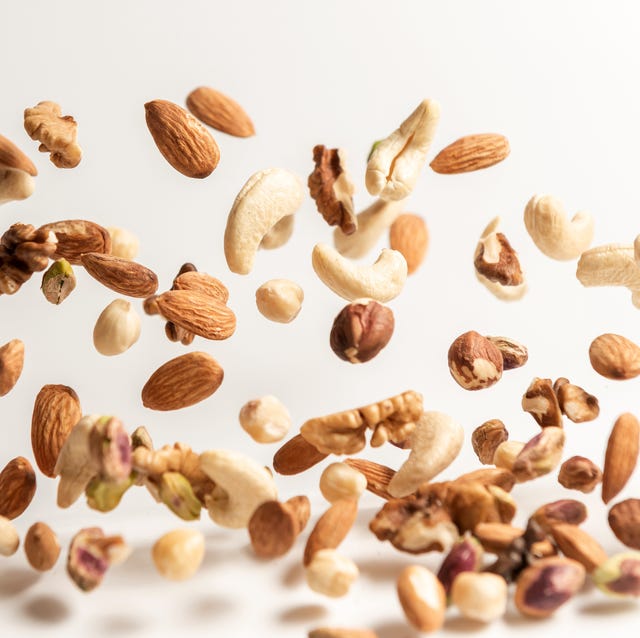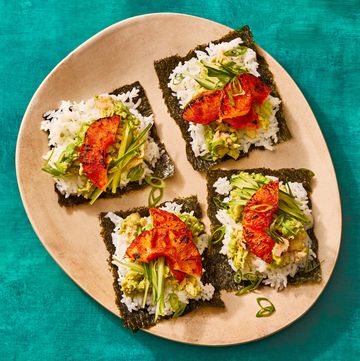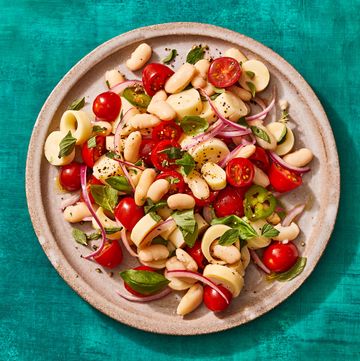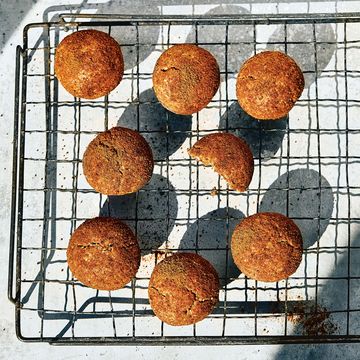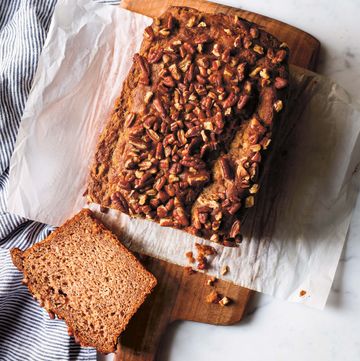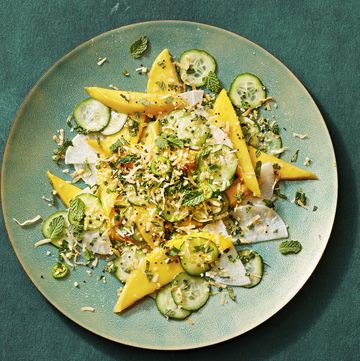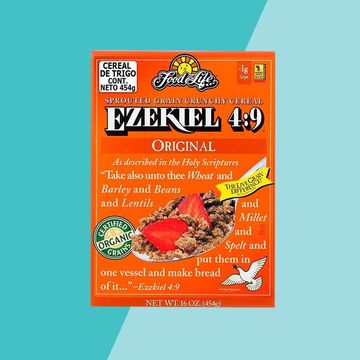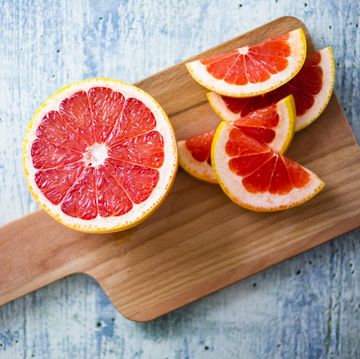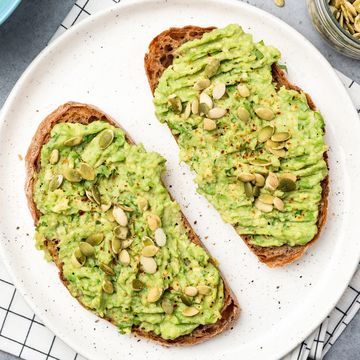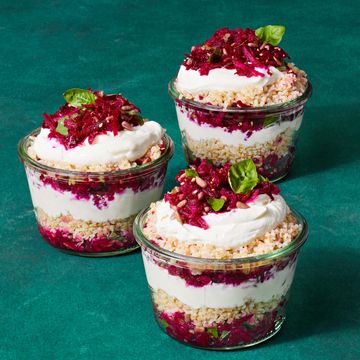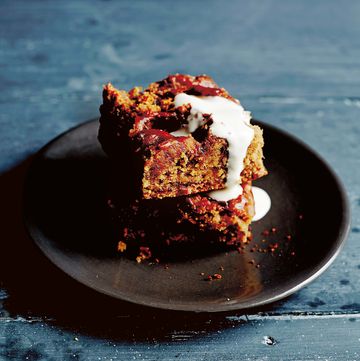1Pistachios
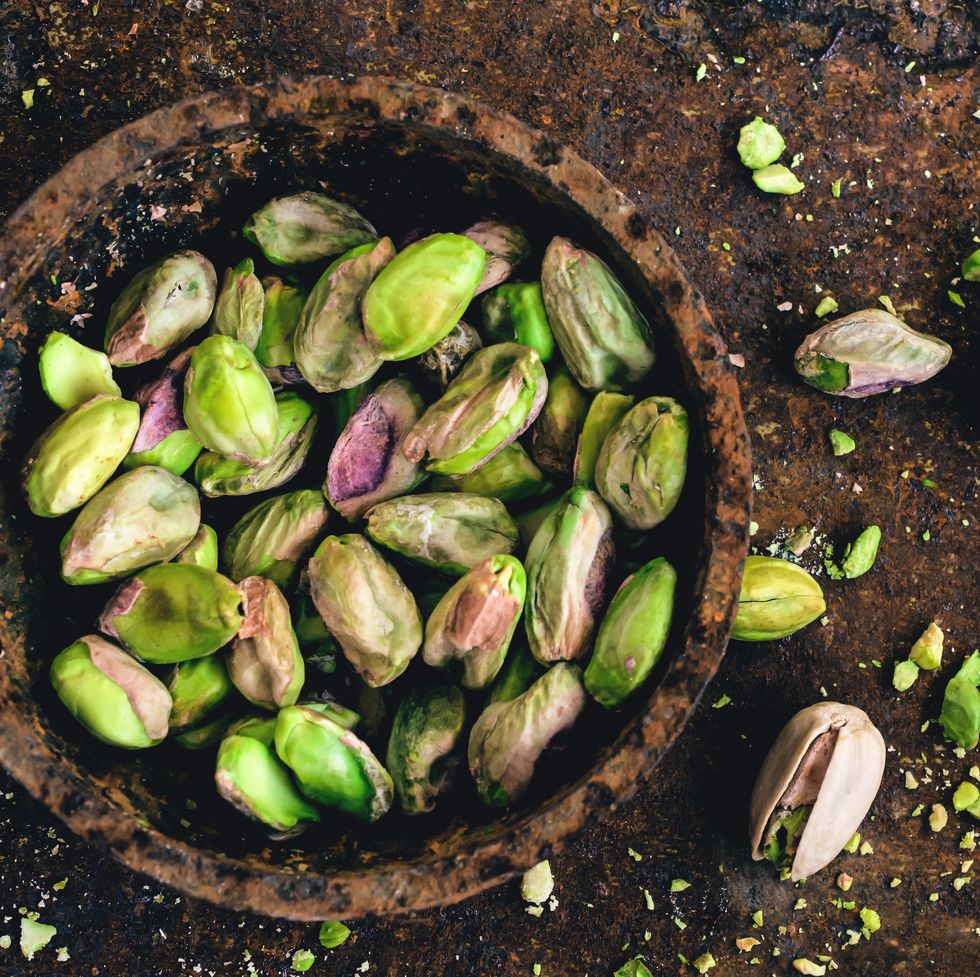 Aniko Hobel//Getty Images
Aniko Hobel//Getty ImagesPistachios are a great source of plant-based protein because they are one of the few plants that contain all nine essential amino acids in adequate quantities. This means that they are a complete protein, which some plant-based eaters may find difficult to fulfill in their diets. “Another benefit of pistachios is that they are a good source of melatonin, which promotes healthy sleep. Also, a pistachio’s signature green color comes from a variety of phytochemicals, lending to their antioxidant and anti-inflammatory properties,” says Dandrea-Russert. Sprinkle them on roasted veggies for a little crunch, use finely chopped pistachios as “breading” for fish fillets, or add them to yogurt with a drizzle of honey.
A 1-ounce (49 kernels) serving of pistachios contains:
- Calories: 159
- Fat: 12.8 grams
- Protein: 5.73 grams
- Fiber: 3 grams
- Copper: 41% of the DV
- Vitamin B6: 28% of the DV
2Walnuts
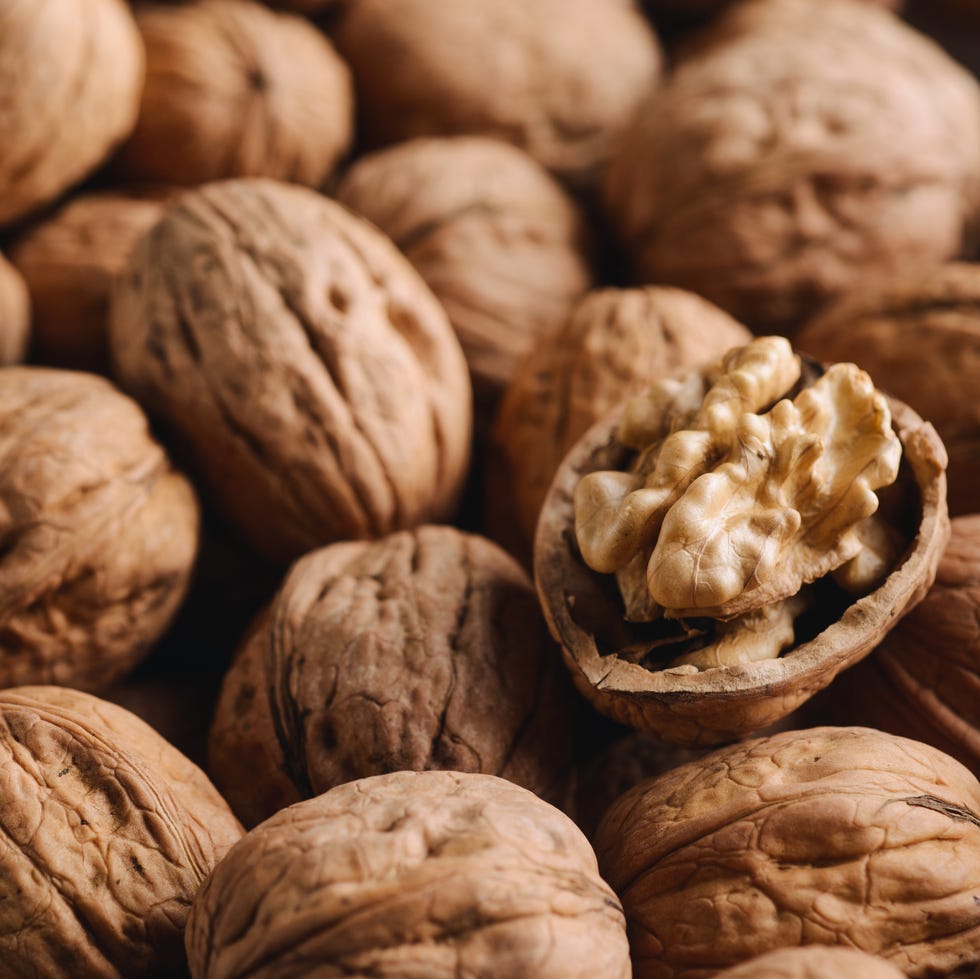 Cristobal Marambio//Getty Images
Cristobal Marambio//Getty ImagesWalnuts might just be a good-mood food: Studies have found that walnuts promote cognitive health and mental health because of their antioxidant and anti-inflammatory properties, though more research is needed. Dandrea-Russert mentioned another study that looked at the mental health of stressed-out students and found that 56 g of walnuts a day (two oz) improved mood as well as gut microbe biodiversity. “Walnuts also provide a significant amount of omega-3—2.5 g in the form of ALA (alpha linoleic acid),” says Jones. She recommends storing them in your refrigerator or freezer, as the omega-3 content may make them oxidize and spoil more easily than some other nuts.
A 1-ounce (14 halves) serving of walnuts contains:
- Calories: 185
- Fat: 18.5 grams
- Protein: 4.31 grams
- Fiber: 1.9 grams
- Manganese: 53% of the DV
3Brazil Nuts
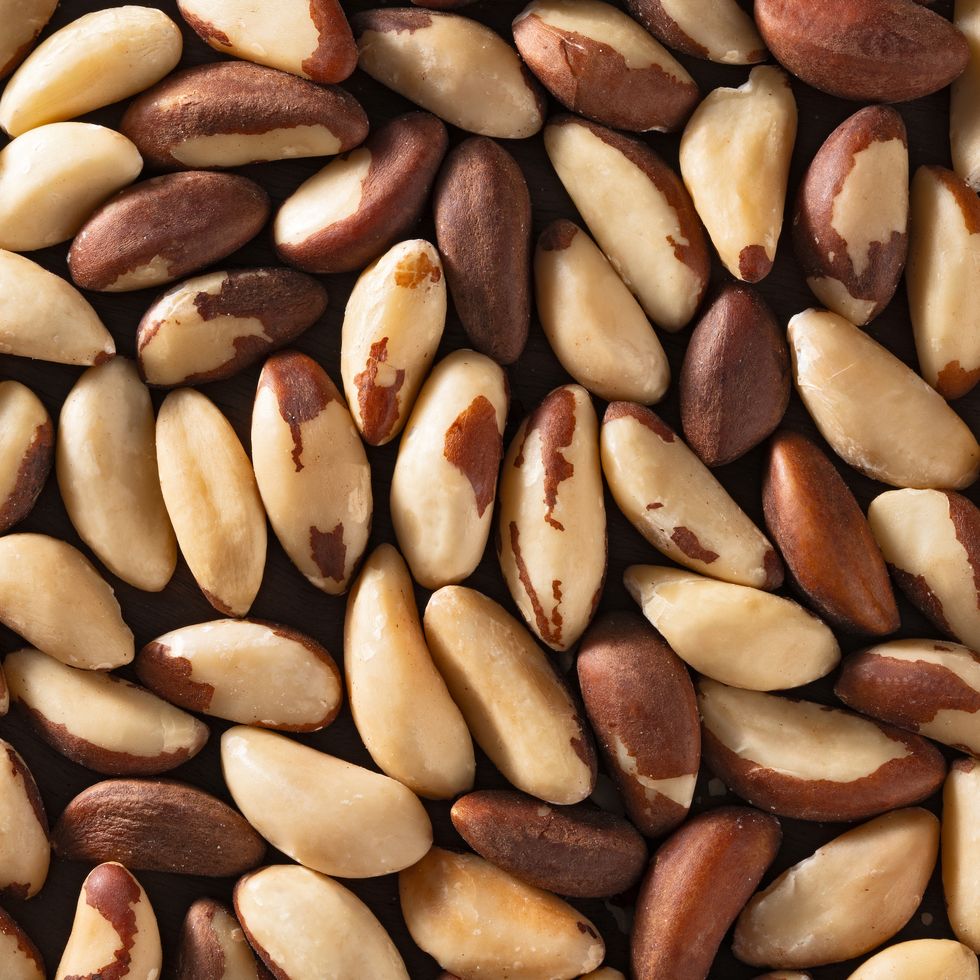 MirageC//Getty Images
MirageC//Getty ImagesJust one of these super-size nuts, among Jones’ top nut recommendations, can offer more than your daily value for selenium, an essential component that plays a key role in reproduction, thyroid health, and the prevention of cell damage and infections. Just be aware that the tolerable upper intake level of selenium is about 400 mcg and Brazil nuts contain 68–91 mcg per nut. Try not to exceed three nuts per day (because they are so large, 1–2 is plenty satisfying). The nuts contain other beneficial micronutrients like zinc, copper, and magnesium, as well as phytonutrients that act as antioxidants. Enjoy them finely chopped on top of yogurt or blended into a smoothie.
A 1-ounce (6 kernels) serving of Brazil nuts contains:
- Calories: 187
- Fat: 19 grams
- Protein: 4.05 grams
- Fiber: 2.13 grams
- Selenium: 989% of the DV
- Copper: 55% of the DV
- Magnesium: 25% of the DV
Advertisement - Continue Reading Below
4Almonds
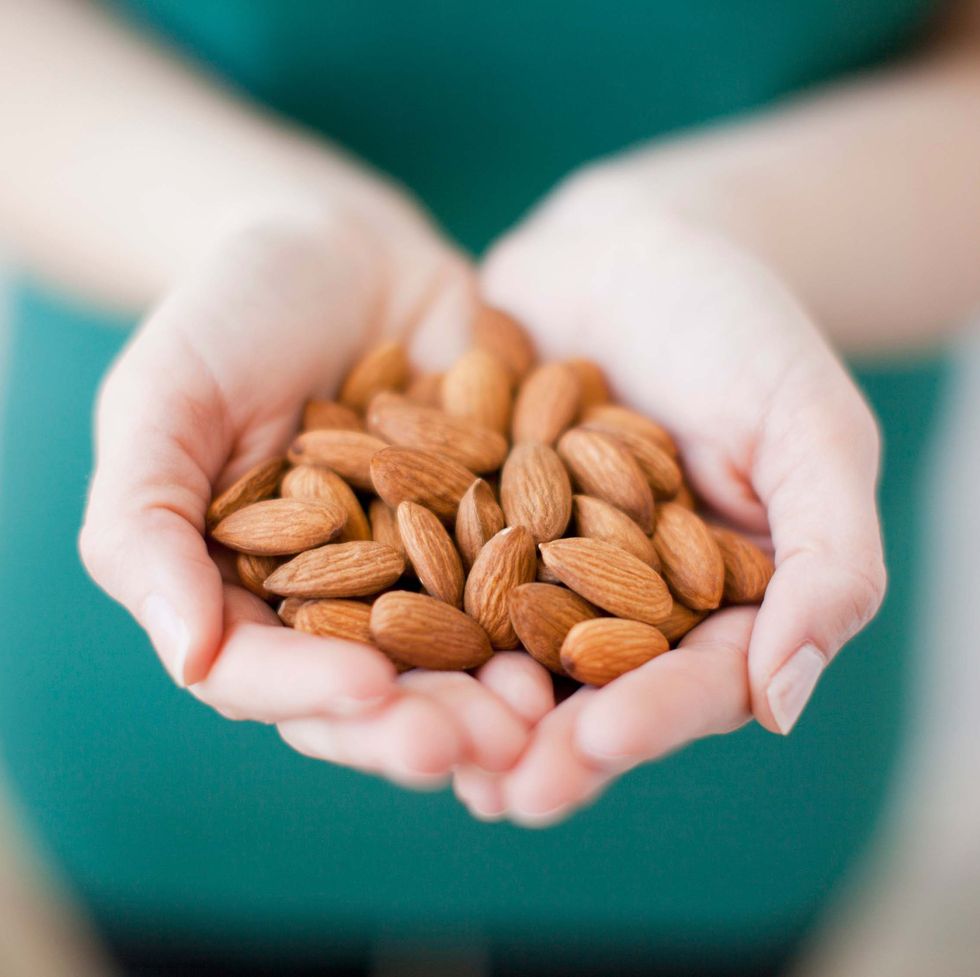 Jessica Peterson//Getty Images
Jessica Peterson//Getty ImagesThanks to their healthy monounsaturated fat content, almonds are a heart-friendly addition to your diet. They’re also a rich source of fiber, calcium, magnesium, and vitamin E. Dandrea-Russert suggests eating whole almonds with the skin on: “Research shows that whole almonds may support gut health through their prebiotic properties. Bonus that many of the phytochemicals are housed in the fibrous almond skin.” Almond flour is a delicious, nutty addition to baked goods, sliced and toasted almonds make a prime salad topper, and chopped almonds are great on oatmeal.
A 1-ounce (23 kernels) serving of almonds contains:
- Calories: 164
- Fat: 14.1 grams
- Protein: 6.01 grams
- Fiber: 3.54 grams
- Vitamin E: 48% of the DV
- Manganese: 27% of the DV
5Peanuts
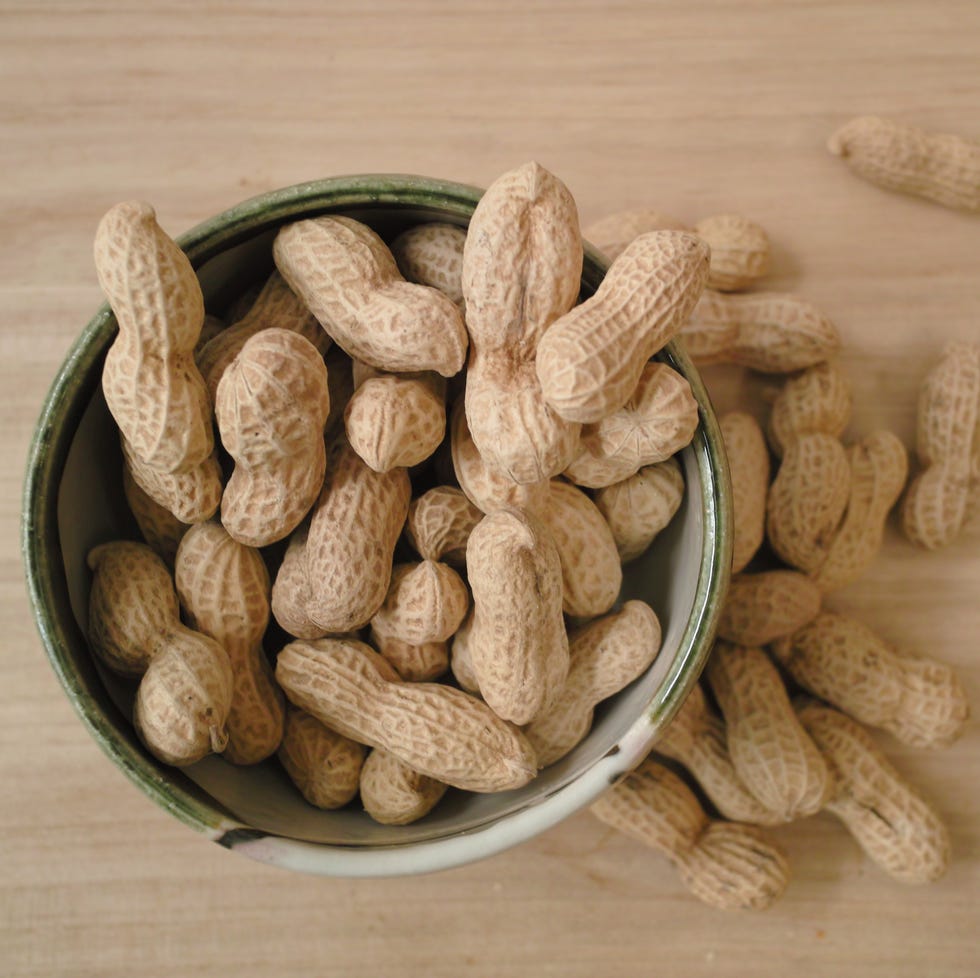 canacol//Getty Images
canacol//Getty ImagesThough technically a legume, peanuts are often consumed like nuts and offer many of the same nutritional benefits, like healthy fats and protein. In fact, peanuts boast more protein than most nuts, clocking in at over 7 g per 1-oz serving. (Almonds and pistachios have about 6 g of protein, cashews have about 5 g, and walnuts have 4 g in the same serving size). Enjoy peanuts sprinkled over a curry or stew, blended into energy bites, or add a dollop of peanut butter to your go-to pancake batter for a protein boost.
A 1-ounce (28 grams) serving of peanuts contains:
- Calories: 160
- Fat: 13.8 grams
- Protein: 7.14 grams
- Fiber: 2.41 grams
- Manganese: 27% of the DV
6Cashews
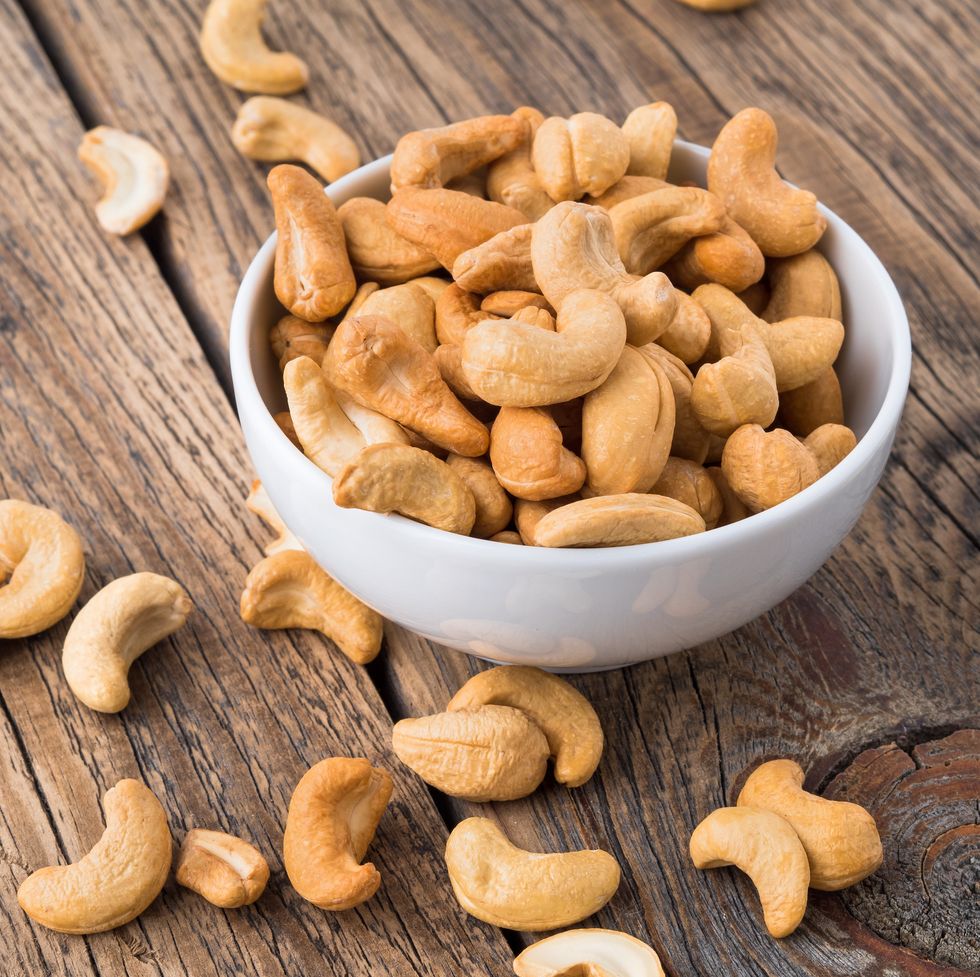 Moldovan Cosmin / 500px//Getty Images
Moldovan Cosmin / 500px//Getty ImagesCashews contain a bundle of essential minerals like zinc, copper, magnesium, and manganese (key for energy production, immune support and bone health, among other functions). They’re also rich in leucine, the essential amino acid that triggers muscle synthesis. Incorporate them into stir-fries, roast them with a pinch of salt, or boil them with water and spices, then puree for a creamy start to a vegan pasta sauce. With a smooth, buttery texture, they make a tasty alternative for dairy.
A 1-ounce (28 grams) serving of cashews contains:
- Calories: 157
- Fat: 12.4 grams
- Protein: 5.16 grams
- Fiber: 0.94 grams
- Copper: 69% of the DV
Advertisement - Continue Reading Below
7Hazelnuts
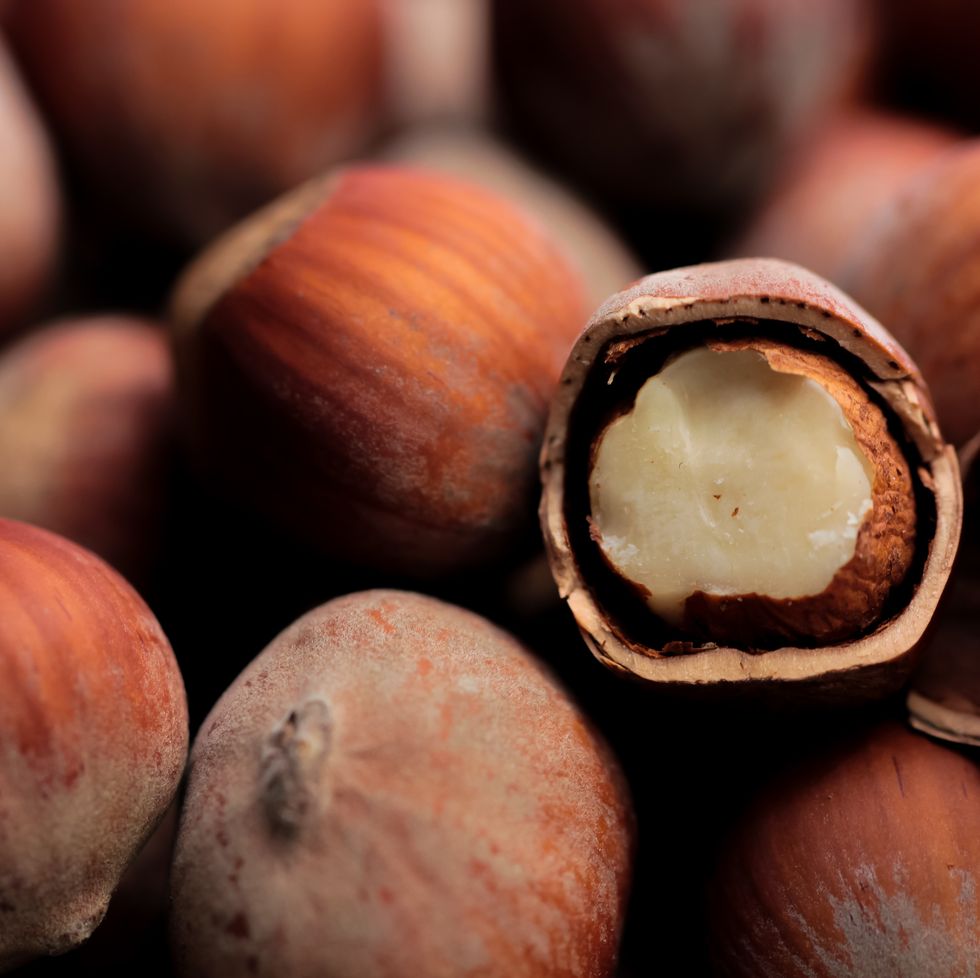 Yulia Podolinskaya / 500px//Getty Images
Yulia Podolinskaya / 500px//Getty ImagesIt’s no wonder hazelnuts are the perfect partner to chocolate: Mildly sweet and very rich, they practically scream “dessert.” The decadent morsels are also full of antioxidants, which protect the body from oxidative stress (an imbalance between molecules in your body that can lead to various diseases). Eating hazelnuts, especially with the skin on where antioxidant activity is stronger, has been shown to reduce oxidative stress. But they’re not just for a post-dinner treat. Combine them with other nuts, bittersweet chocolate chips, and dried fruit for the ultimate trail mix that’s ideal for on-the-go snacking.
A 1-ounce (21 kernels) serving of hazelnuts contains:
- Calories: 178
- Fat: 17.2 grams
- Protein: 4.25 grams
- Fiber: 2.75 grams
- Manganese: 87% of the DV
What is the most nutritious way to eat nuts?
Pair nuts with fresh fruit like apples, pears, or berries, recommends Jones: “This helps balance the snack so that in addition to fat, protein, and fiber, you’ll get energy that maintains adequate blood sugar levels along with more volume to enhance feelings of fullness.” On the go? Swap in dried fruit instead for a shelf-stable, portable snack. If you’re looking for a higher-protein snack, pair a handful of nuts with a hard boiled egg along with veggies and hummus, advises Jones.

Samantha (she/her) is an Assistant Editor in the Good Housekeeping Test Kitchen, where she writes about tasty recipes, must-try food products and top-tested secrets for home cooking success. She has taste-tasted hundreds of products and recipes since joining GH in 2020 (tough job!). A graduate of Fordham University, she considers the kitchen to be her happiest place.
Advertisement - Continue Reading Below
Advertisement - Continue Reading Below
Advertisement - Continue Reading Below
